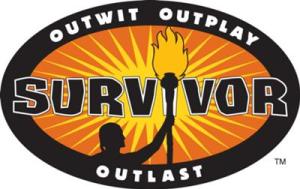At a recent work function, an employee was recognized for her tenure with the organization.
She was introduced, presented with her plaque, and applauded for her service. And then she gave a small speech.
The speech was very much her personality – heartfelt, spontaneous, funny, endearing. But one part stood out over all others.
She began the section by thanking those who helped her in her career. She acknowledged all the support and mentoring she received from those around her. She then talked about all she was able to accomplish, comparing herself to a butterfly. And then she paused, realized how much she was going on and on about herself, giggled, and said, “I love me.”
The crowd laughed. They loved it. It was so “her.”
She laughed along a little bit, then got serious and said, “It took me a long time to be able to say that.”
Imagine being brave enough to stand in front of a room of your peers – and your leadership team – and say those words.
How would your organization react? I mean, really….what would the people in the room say if this happened at your organization?
Would they be supportive? Would they applaud? Or would they politely clap while giving each other knowing glances that this is clearly a “career limiting move”?
For all our humanity in the workplace, we actually kind of suck at dealing with heartfelt emotion. When someone expresses gratitude earnestly in public, it makes us uncomfortable. Why is that? Have we really decided that people AREN’T people that we should pretend we have no emotions? I hate drama as much as the next person, but I also recognize that people bring different parts of their lives to work. Some folks look forward to work as a place to leave the chaos of their life behind. Some people enjoy work for the relationships they’ve developed. Some people overshare (we didn’t need to see videos of your knee surgery, but thanks!). Some people never share at all (it seems like there’s that one person who no one really knows, and it turns out they have something like 12 kids and were in a movie once).
The point is, we as leaders have done a poor job setting a good example about what is an is not okay in the workplace in terms of emotions. Someone probably cried in a VPs office once and it freaked him/her out, and the next thing you know, all the “how to succeed in business” articles started defining professionalism as “no emotion.” That message of “stoicism = strength = success” has been perpetuated for years.
But then came Emotional Intelligence and suddenly we’re all supposed to care about our feelings, and worse than that…THE FEELINGS OF OTHERS. Good lord. We are not equipped for that – especially leaders. We’ve worked hard to HIDE emotions, and promote those who do the same. So what happened? Some leaders went WAY too far the other way, and were all about sharing and caring and wearing their emotions on their sleeves. Which, frankly, makes a LOT of people uncomfortable. And again, emotion became something to make fun of.
We need to find balance, people. We need to find a way for people to BE people without BEING all over the other people who don’t like to BE in public. Leaders have a chance to connect with their people, and help their people connect with other people – in a completely appropriate and professionally supportive way. No, we don’t have to be in each others’ weddings – but recognize some people might. We don’t have to go out to happy hour with our coworkers – but there are a lot of people who do. The best way to promote balance is to watch and learn from people who are successful, but are also unafraid to show emotion. They cry, they vent, they laugh uncontrollably at cat videos. But they still get shit done and they still command respect from those around them.
Back to our story….
After the employee being honored finished her speech, she received a standing ovation. And it reinforced everything that’s good about being yourself at work. About acknowledging the mistakes you made during your career. About being grateful to those who helped you along the way. About the pain of growing up. And about the satisfaction of kicking butt at your job for a long time.
This is a person who had leaders who believed in her. Who pushed her when it looked like she needed pushing. Who encouraged her when she needed encouraging. Who supported her humor, her intelligence, her sass, and her abilities. In short, this is a person who had leaders who allowed her to discover who she was – someone who could finally say, “I love me.”
Leaders – if you can have ONE employee be able to say that, then you have done your job. You have helped someone realize their potential. You enabled instead of dictated. You got the hell out of the way and watched someone flourish because of what was inside them.
Here endeth the lesson.
